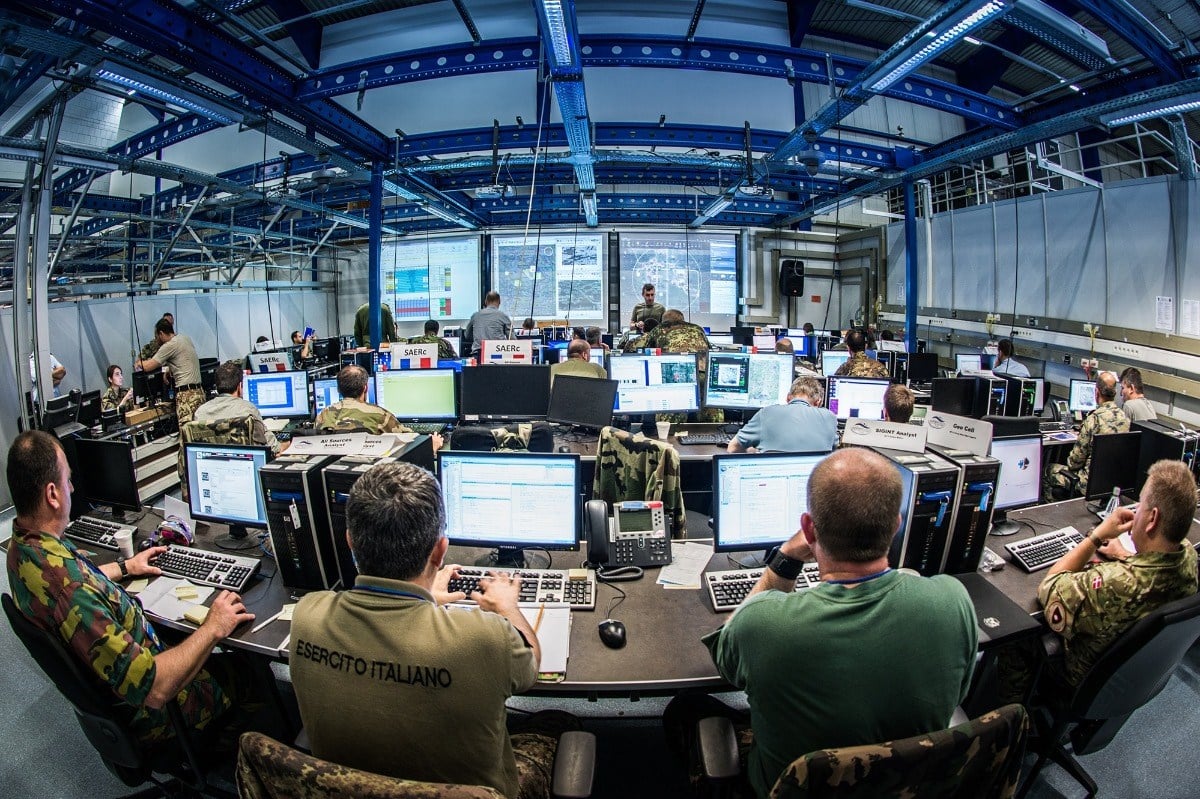NATO prepares for cyberwarfare integrated with military operations
NATO launches a cyber exercise in Estonia simulating a cyberattack on a fictional island to prepare for anticipated cyberwar.
-

NATO member states and allies working on a cyber front as digital war looms closer following the war in Ukraine
As world conflicts have morphed from traditional bombs and footsoldiers into more sophisticated and complex fields such as cyberspace, POLITICO reported that around 150 NATO cybersecurity experts have convened in Estonia to make ready for an upcoming anticipated cyberwar.
“There is a level of seriousness added; it’s not anymore so fictitious. It has become quite obvious those things are happening in reality,” Colonel Bernad Hansen, director of the Cyberspace department at NATO Command Transformation, said referring to the current war in Ukraine.
“It has made it much more live, it’s reality,” Major Tobias Malm from the HQ of the Swedish Armed Forces stated regarding the events in Ukraine.
“It’s the real world, you sit in the middle of it, and it’s a daily struggle to address these issues.”
Read more: South Korea joins NATO cyber defense center
According to the news site, the events in Ukraine brought NATO to consider the scenario to be "all too real" as Russia is actively engaging in cyber attacks against Kiev and targeting vital infrastructure that could cause more damage to a country than traditional warfare, including cutting the water off, shutting down electricity, putting metro stations in a state of mayhem among many other scenarios.
The cyber experts in NATO have been closely monitoring the war to draw-up lessons in order to prepare member states against cyber attacks carried out by adversaries, which in turn has elevated the importance of the alliance's annual Cyber Coalition exercise that aims to join efforts of over 40 member states and their allies in addition to several organizations to cooperate on training to defend cyber operations targeting critical infrastructure (power grids etc) and respond to them.
Read more: NATO classified documents sold on dark web after Portuguese EMGFA hack
The exercise usually includes around 1,000 cyber experts who take part in the training remotely from their countries, the site added.
The exercises this year focused on defending a fictional island "Icebergen" from simulated cyber attacks.
Experts from different parts of the world, spanning from the US to Asian countries such as Japan, took part in the simulation.
The virtual operation was launched on November 28, while roles have been assigned to different countries that were tasked to protect the island from hackers targeting government vital services, including shutting down its power, in addition to breaching intelligence documents to steal them.
Read more: National Interest: Hezbollah's cyber capabilities led to 2006 win
According to the report, the US was the lead on air command and control, while the UK was responsible for ground control, Romania with narrative building and Poland managed the special operations units.
NATO officials did not disclose the results of the virtual operation, however, the director of the exercise, US Navy Colonel Charles Elliot stated to reporters that all participants passed the simulation without adding more detail regarding vulnerabilities detected.
Referring to the increasing number of specialists that joined this year's exercises, Elliott stated that “it’s certainly possible” that the ongoing war in Ukraine was a primary factor, but is not the sole reason.
Ukraine, which has been a participant in the past exercises, did not join this year due to being "too busy defending their networks from a barrage of Russian attacks — including on major power substations," the report said.
Questions regarding NATO's Article 5 have emerged following the war in Ukraine, as member states are yet to decide whether a cyberattack on one of the countries would invoke the article or not, and what is the bearable threshold of the attack before implementing it.
Read more: US imposes fresh sanctions over Iran's alleged cyber activities
According to the POLITICO report, the critical networks of member states are vulnerable to cyberattacks which are causing matters to be more complicated.
Cyberattacks can span from complex operations to simple click-bait links targeting users that can cause malware to breach the system and shut it down and demand ransom.
The news site suggests that a new form of integration of cyberwarfare with that of the military can be witnessed in Ukraine where "Russia has coordinated missile strikes in Ukraine with cyberattacks," simultaneously.
Read more: Iraqi group targets Israeli Ministry of Health with cyber attack
Part of the exercise incorporated experimentation of new technologies, including adapting the use of artificial intelligence technologies to help counter cyber threats.
The exercise aims also at trying out new technologies within the field in an operational mode.
Colonel Bernad Hansen stressed that cyberattacks must be fended off using means beyond the government and the military, hinting at the participation of the private sector.
Read more: Iran dismantles an Israeli cyber espionage network
Earlier this year, following the start of the war in Ukraine, Russia announced that aggressive cyber warfare has been launched against the country, where President Vladimir Putin stated that the number of cyberattacks has since multiplied.
Putin noted that the cyberattacks against Russia have been perpetrated by various well-coordinated sources in multiple countries. Experts said that lone hackers cannot conduct such well-devised and complex attacks. In essence, said Putin, "these are the actions of state structures".
It's noteworthy that in 2008 NATO established the Cooperative Cyber Defense Center of Excellence (CCDCOE) following a large-scale cyberattack on Estonia's governmental networks in 2007, which the country's officials quickly blamed on Russia at first, but later Tallinn officials admitted that they lacked conclusive evidence to implicate the Kremlin.

 6 Min Read
6 Min Read








